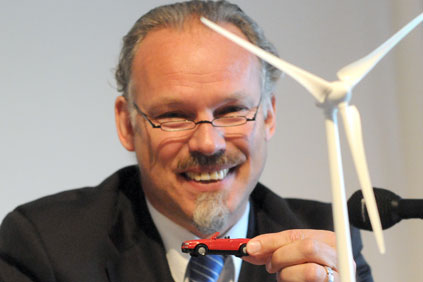Last night’s decision at a nuclear summit meeting in the Chancellor’s office "There’s no question of nuclear running time extensions providing a bridge to the renewables’ era," he said. Albers said the legislation effectively concedes wind energy a growth period of just five years.
Under the new arrangements, nuclear power stations built before 1980 are to be allowed to operate eight years longer and new reactors for another 14 years. This will result in an average 12-year extension and overturn the German nuclear phase-out law arrangements that gave reactors a lifetime of about 32 years each.
The government’s compromise is based on energy scenarios calculated with the assumption of nuclear lifetime extensions of 4, 12, 20 and 28 years. Under the 12-year extension scenario, expansion of onshore wind energy is slated to reach 36.4GW in 2050. But at growth rates achieved in recent years, "we will reach this in 2015 already," states Albers. In mid-2010, onshore wind capacity in Germany amounted to 26,387MW.
The nuclear compromise is oriented exclusively towards the interests of the nuclear power plant operators and decidedly not according to the generating capacity of wind, solar and other renewables, Albers complains.
Nuclear power will congest the transmission networks and block wind energy’s potential expansion, he fears. Innovation and investments running to billions of Europe in renewables will be thwarted and the existing oligopoly - of RWE, E.on, EnBW and Vattenfall Europe - "will cement into place their base-load oriented energy generation," Albers continues.
For her part, Chancellor Angela Merkel described the compromise as "a revolution in energy supply" and proof that the government can find solutions to controversial problems. She also announced that from 2013, the complete earnings from auctioning of CO2 certificates will be invested in expansion of renewable energies, amounting to about €2 billion/year.

.png)


.png)










